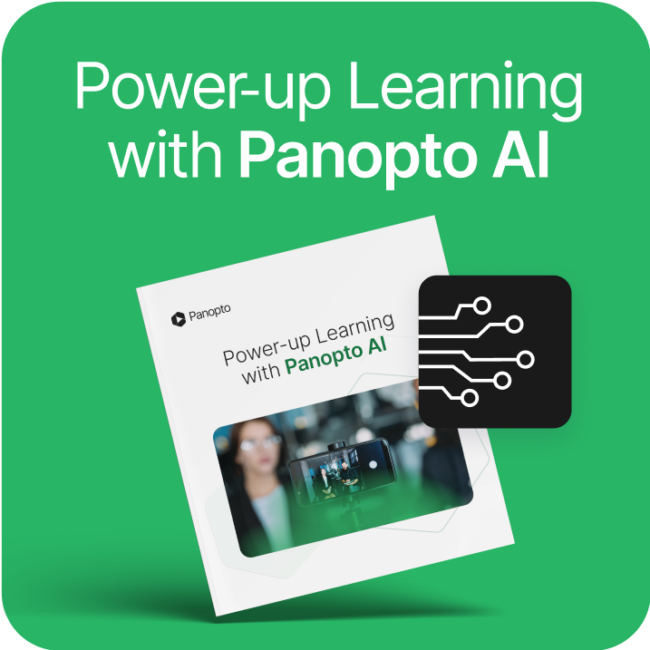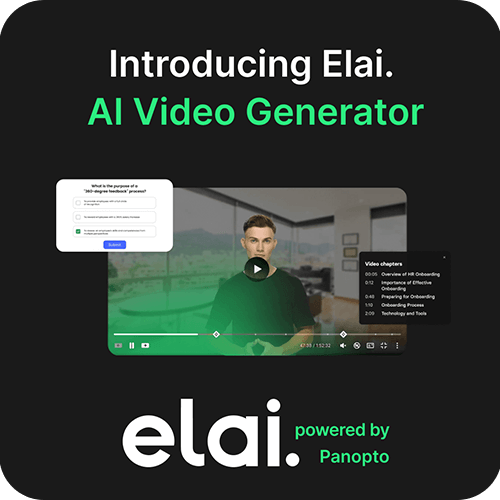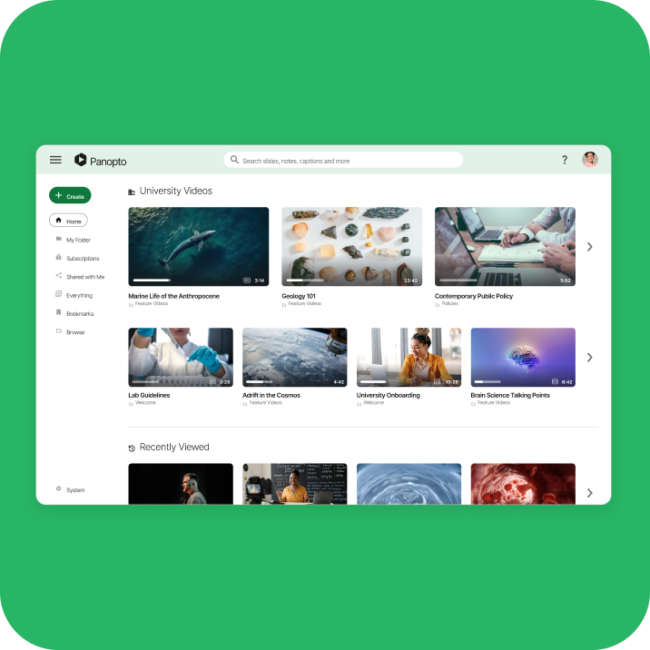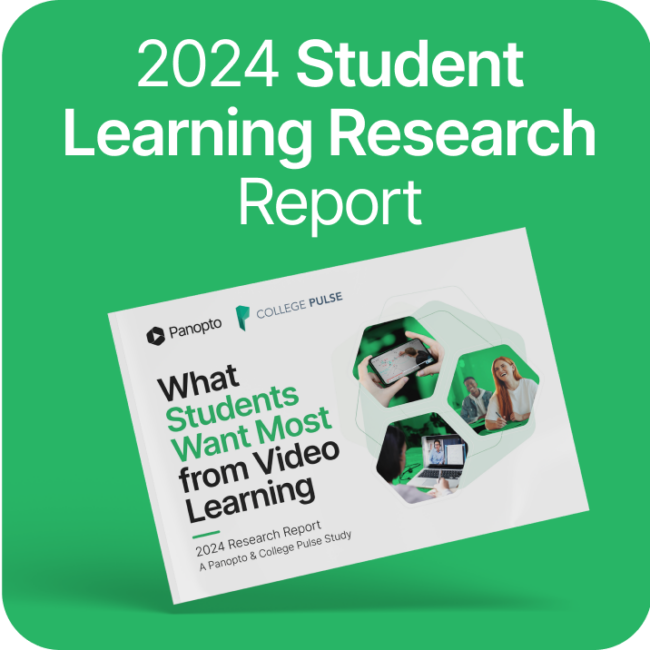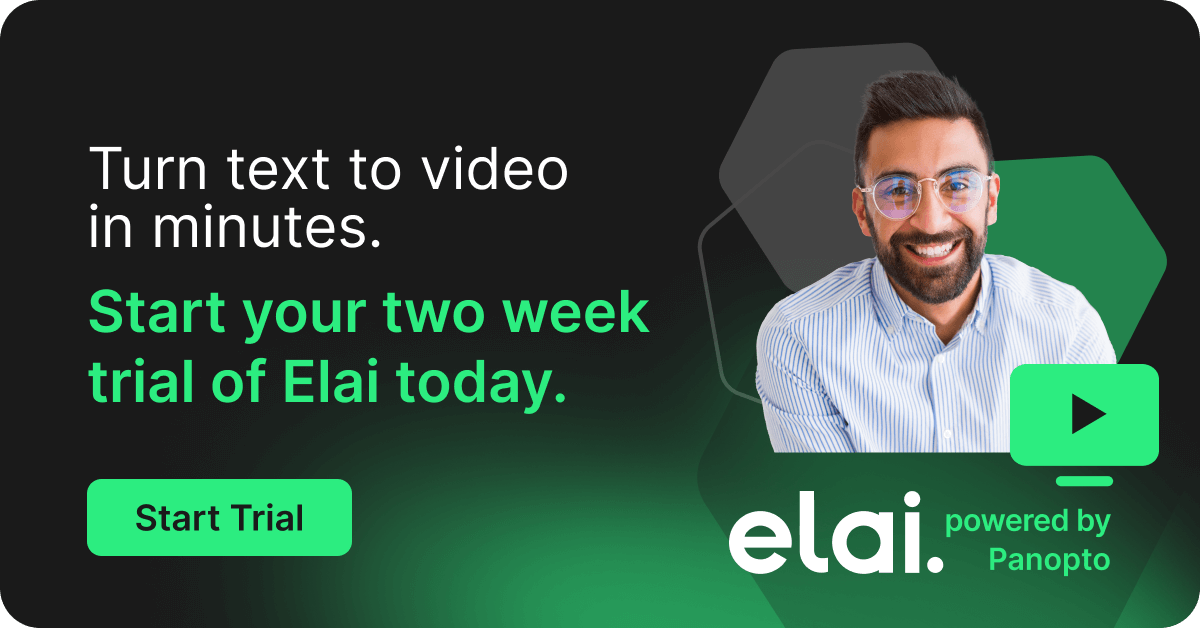- Uncategorized
This Week In Ideas Shared With Panopto — July 17, 2015
Sometimes the best way to support a serious idea is to have some fun.
This week marks the 30th anniversary of Live Aid, a worldwide rock concert organized to raise money for famine relief in Ethiopia and Sudan. Opened in London’s Wembley Stadium and continued at Philadelphia’s JFK Stadium, the “superconcert” was a global event, broadcast to more than a billion viewers in 110 nations.
Live Aid was conceived of by Irish musician Bob Geldof, after witnessing firsthand the horrific effects of famine in eastern Africa. Appealing to his connections, he organized the event in just 10 weeks, securing 75 artists to perform (including the apparently-indefatigable Phil Collins, who performed early in London, caught the Concorde to the US and performed again in Philadelphia — and then sat in on drums for the reunion of the surviving members of Led Zeppelin).
Today Live Aid stands as testament to the potential for technology and fun to bring an idea to the forefront. In all, the event raised $127 million in famine relief. Live Aid even led to political change — the publicity it generated encouraged many nations to provide enough surplus grain to end the immediate hunger crisis in Africa.
Of course, few of us have Madonna’s (or, today, Taylor Swift’s) phone number handy — but that doesn’t mean we can’t learn from Live Aid’s success to help support the ideas we believe in.
Conferences, symposiums, grassroots get-togethers, and yes, concerts and performances too can all be a great way to build awareness and make a serious appeal under the guise of fun. The opportunity to learn, watch, or participate can all go a long way toward creating an audience that cares. And just as Live Aid extended its reach via satellite, today’s ideas are easier than ever to share thanks to the live streaming and on-demand video capabilities made easy by modern video platforms like Panopto.
This week we saw more and more people taking advantage of the power of video to share ideas, present information, and show how the world works. And in the spirit of passing it on, these are just a few of the ideas shared this week with Panopto’s video presentation software.

Join Bournemouth University for the Smart Tourism Workshop, looking into the main trends and challenges of “smart” tourism. “Smartness” takes advantage of technology to process data in real time to produce services and products which are of value for all involved. Smart destinations successfully implement smartness to improve the competitiveness of their destination and enhance the social, economic and environmental prosperity. The event brings together academic research and professional practice to explore how smart tourism will enable tourism destinations to take advantage of the emergent technologies. Session 1 is linked above, and session 2 can be found here.
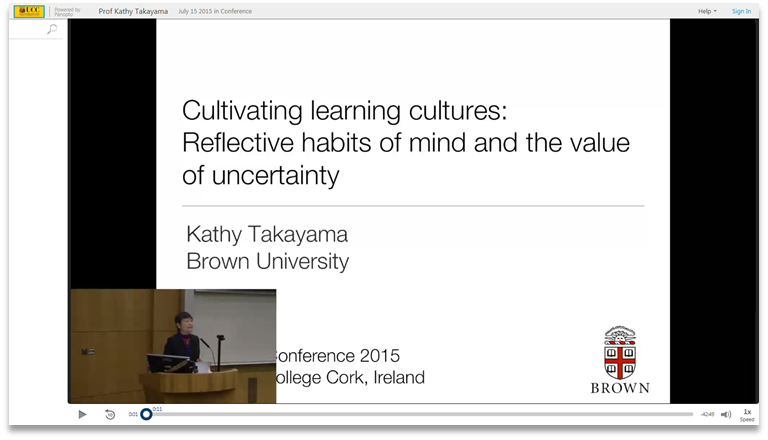
Cultivating Learning Cultures: Reflective habits of mind and the value of uncertainty
As academic institutions prepare their students for careers that increasingly depend upon resilience, teamwork, and the integration of knowledge domains, how do they cultivate learning cultures that transcend the constraints of curricular structures and that value uncertainty as a crucial component of learning? Sit in with the audience at the University College Cork and hear from Dr. Kathy Takayama, Executive Director of the Sheridan Center for Teaching and Learning and Professor of Molecular Biology, Cell Biology & Biochemistry at Brown University, for this exploration of how schools and universities might design high impact learning experiences to foster iterative reflection for deep understanding and experiential thinking.

Rosetta: Wild Bounce at Comet Churyumov-Gerasimenko
Pay tribute to the late Dr. Claudia Alexander, pioneering scientist at NASA’s Jet Propulsion Laboratory and Project Manager the U.S. Rosetta Project, as she presents of her last seminars at Johns Hopkins University. Rosetta is the third cornerstone mission of the European Space Agency’s (ESA) Horizon 2000 Programme. Its goals are to examine some of the original material of the solar system with a comprehensive evaluation of the mineralogic, isotopic, and organic constituents of a comet; understand how the body works as a machine to absorb and re-radiate energy from the sun; and understand more about the origins of the solar system. In this talk, Alexander explains the science background of some of the mysteries of comets including pros and cons about why scientists think comets might have brought Earth’s water, concepts regarding missing nitrogen in the outer solar system, and material the comet is made of (CAIs & IDPs). The talk includes images of the comet’s activity, the landing, the 60 hours of time spent on the comet’s surface, and an overview of initial findings.

Biosynthonics: Revving the engine of biology to unleash the power of green chemistry
Ironic as it sounds, the pharmaceutical industry is ailing. Despite doubling their R&D expenditures over the past decade, innovator drug companies have struggled to increase their annual drug approval rates. Worse still, candidate attrition rates and development times actually rose during this period. It now costs well in excess of a billion dollars and takes over a decade to discover and develop a new drug. A variety of prognostications have been made regarding the future course that the pharmaceutical industry might take, but none has been as controversial as the suggestion that small-molecule drugs could disappear by 2030. In this talk, Vikramaditya Yadav joins the American Chemical Society to outline how biocatalysis and metabolic engineering could drive the next wave of innovation in small-molecule drug discovery. The recent past has witnessed staggering developments in analytical chemistry, genome sequencing and assembly, flow chemistry, chemi- and bioinformatics, metabolic engineering and synthetic chemistry, as well as exponential improvements in the raw computing power that is available for drug research; integrating these parallel innovations into a single platform could translate a vastly higher number of small-molecule drugs to the bedside.

Introduction to US Constitutional Law
Finally this week, join Pepperdine University, School of Law professor Barry McDonald for this dive into US Constitutional Law. McDonald’s lecture condenses a traditionally yearlong course into 90 minutes, and offers a sharp, information-packed primer to the subject for anyone looking to get smart about the cornerstone of American law.
Try It For Yourself!
Panopto makes it easy for anyone, anywhere to record video presentations and share them online, both as live streaming webcasts and recorded on-demand video. To see how Panopto can help you share your ideas, contact our team for a free trial today.
